The following document explains the opportunity of being a volunteer. From Kathmandu to Dolakha, 3 programs are designed to orientate the volunteer, under specific rules, to help out CPCS and Nepalese children. You can find at the end of the document an application form to complete and sign to become a volunteer and contribute to CPCS cause in Nepal.
Author: CPCS ALLIANCE
THE 2022 ANNUAL REPORT IS HERE
All the schools that had been closed due to Coronavirus have now reopened and, thanks to safe methods, the number of children coming to school is increasing. CPCS International conducted a program that aimed at providing schools with masks and sanitary equipment that most of them were missing. Furthermore, CPCS’ nurses are also encouraging public awareness of the current situation thanks to classes and services to children.
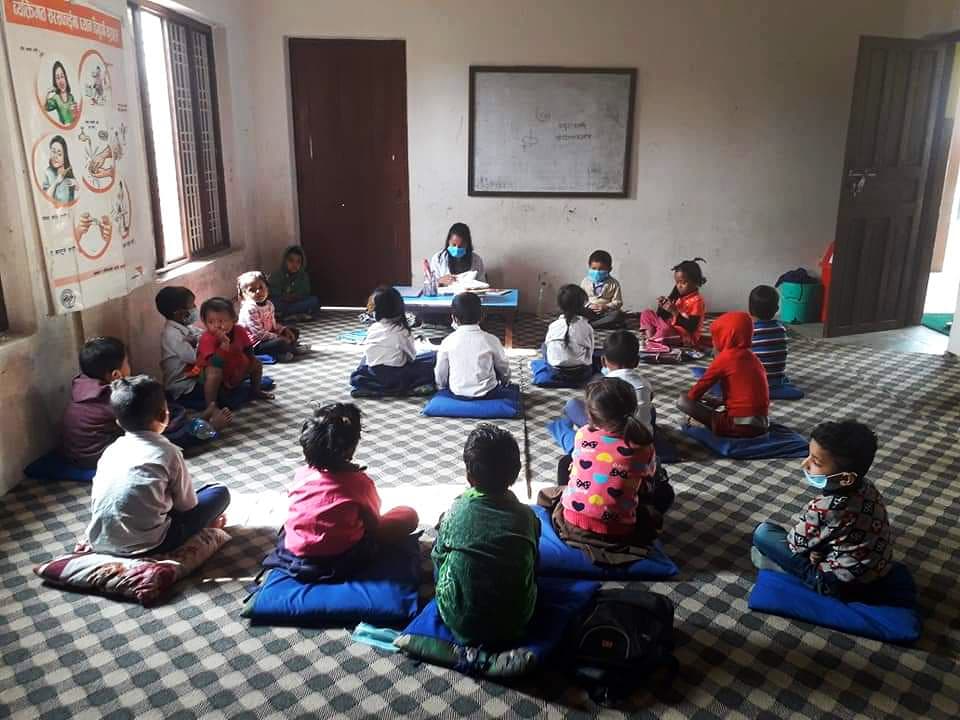
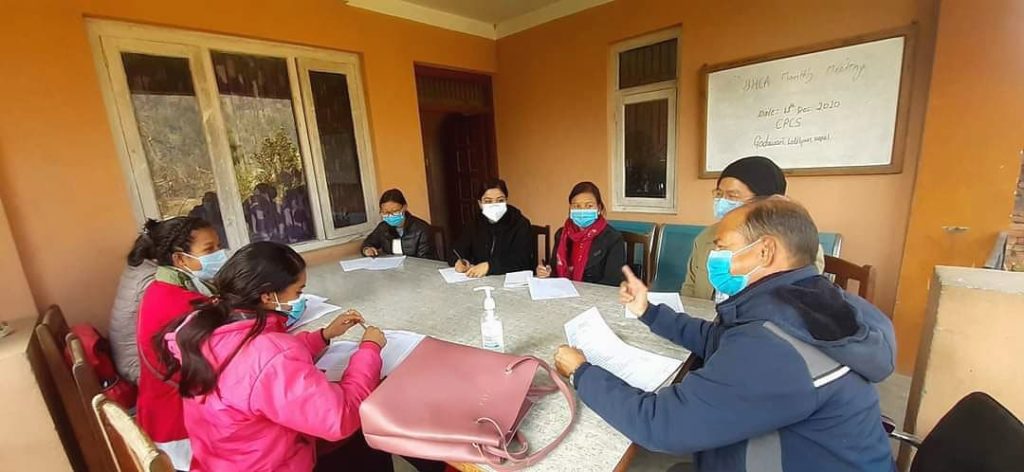
Health is very important to CPCS International. Indeed, the organization supported a general health checkup yesterday in the secondary school Belbari Morang. Moreover, these last days, they also gave classes about how to maintain personal hygiene in COVID-19 times and provided various schools with dignity kits, wound dressings, and betadine solution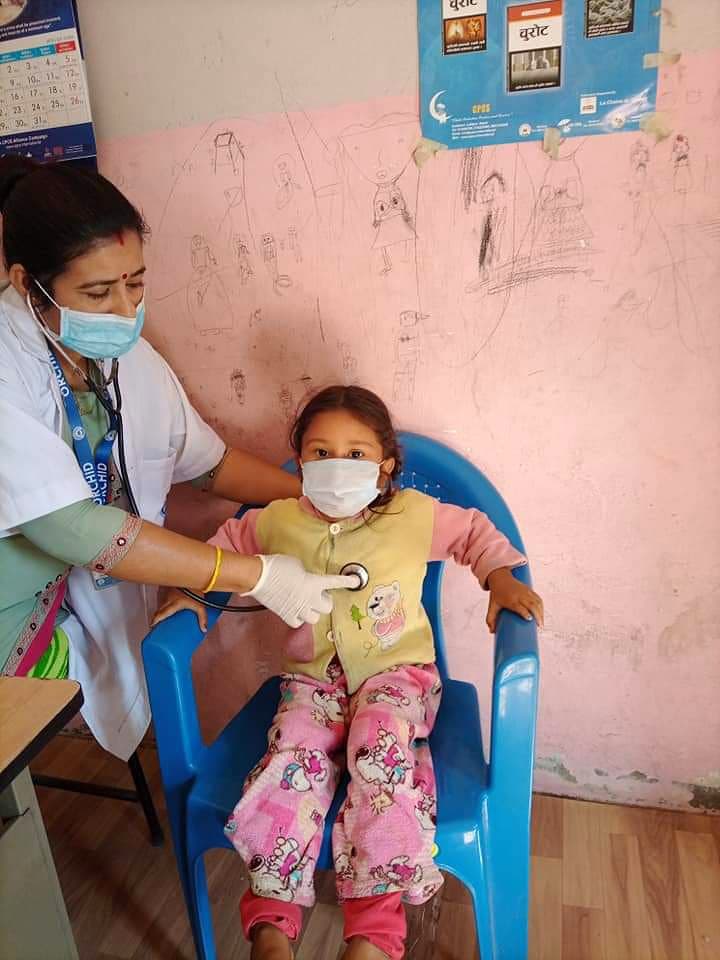 .
. 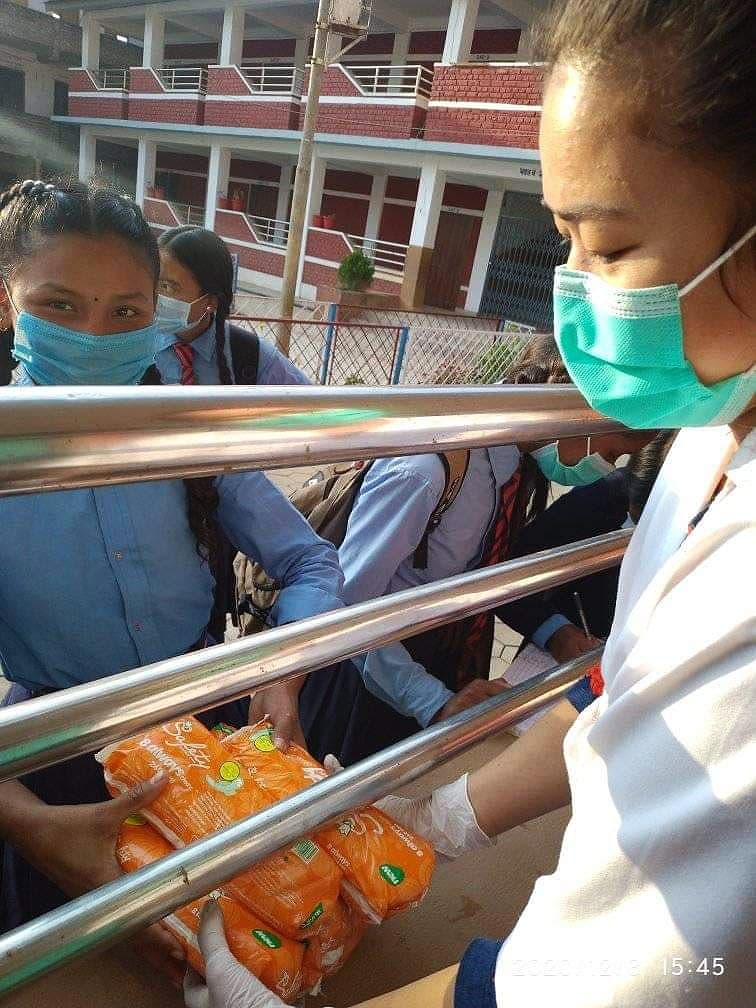
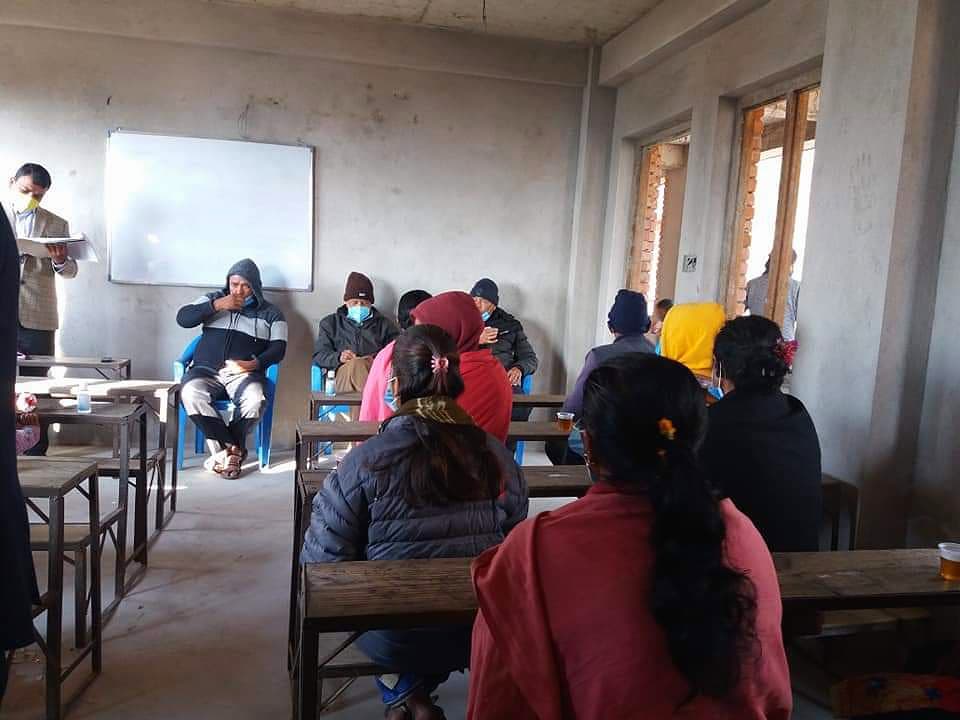
Half-yearly progress report: January-June 2020
This report is published in the context of Covid-19.
WEEKLY REPORT 2



WEEKLY REPORT 1



Coronavirus_ Covid 19 _ Getting ready
Since January 2020 an epidemic of Coronavirus COVID-19 (ex 2019-nCoV) has spread from China to European countries and further afield.
In response to this pandemic, CPCS, and its team do their best to be ready in case of an emergency. This includes conducting awareness classes for the children about coronavirus and how to prevent the contagion but also organizing food stocks and cleaning products in case of a state emergency.
CPCS tries to do the best for the children of Nepal and around the world to keep them safe! We hope that our partners and everyone are well and safe.


Yearly Progress Report 2019
CPCS is very pleased to present to you its annual report. This report explains our actions, our ambitions, and detail what we were able to do during the year.

HAPPY NEW YEAR!
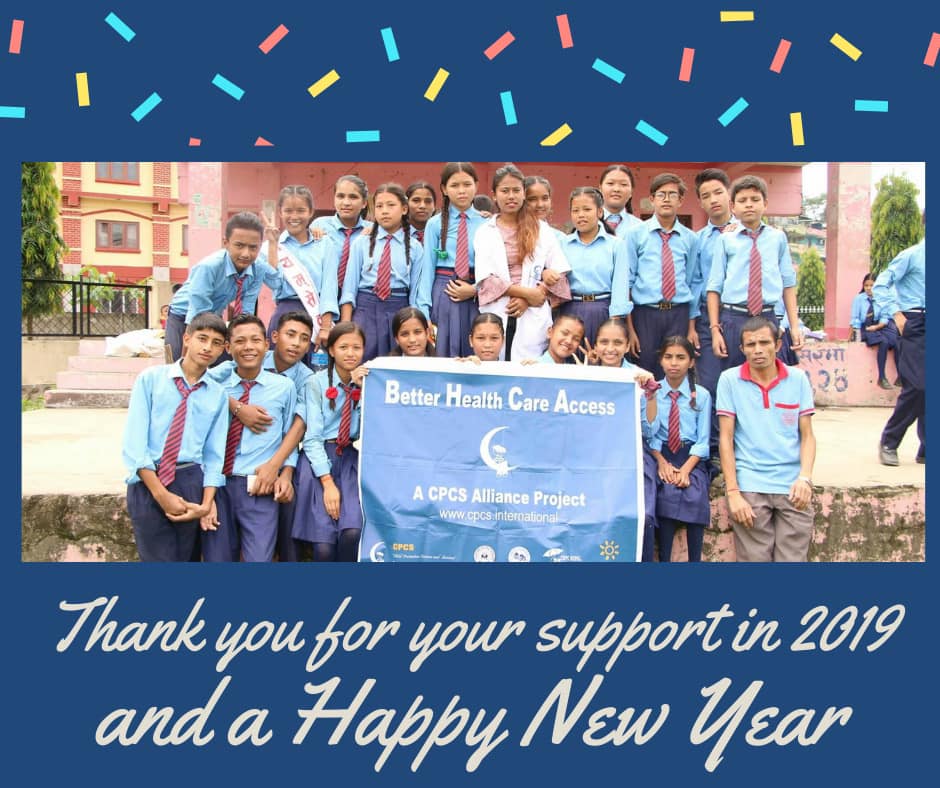
Merry Christmas!
We celebrated Christmas in Dolakha Rajkuleshower Basic school! It was a lot of fun! On this special day, we would like to wish you a merry Christmas and thank all of you for the constant support.
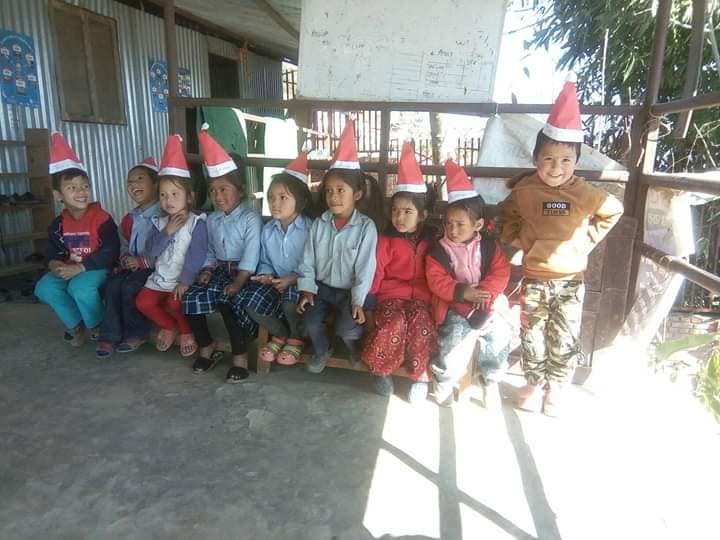
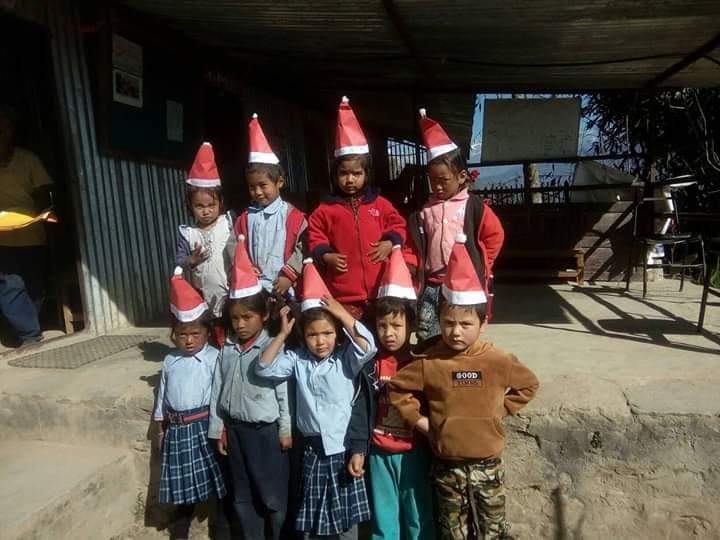
SANITATION IN NEPAL
The lack of access to sanitation in Nepal is striking. A total of 75% of the population is without access to sanitation, one of the highest proportions in Asia. Sanitation includes the use of latrine, personal hygiene, clean surrounding, proper disposal of solid and liquid wastages and hygienic behavior. Yet, proper sanitation is a necessary prerequisite for improvement in general health standards. Every day CPCS conducts actions towards greater hygiene knowledge and health such as awareness classes( nail care, hand washing, and body cleaning) and hygiene materials distribution. Recently in Belbari in the region of Morang, CPCS helped clean a school and toilet for better sanitation

BETTER HEALTH CARE ACCESS
Better Health Care Access is part of the prevention work of CPCS. The partners of the CPCS alliance ensure that medical care, emergency care, and information campaigns are easily accessible. Nurses and social workers perform fantastic work in the centers and schools in Morang, Sindhuli, Dolakha, and Kathmandu. More than 8,000 school children and their families have easy access to medical care. Here is a composition of the photos from last week (Supported by CPCS International).

CHILDREN’S RIGHTS DAY
Thirty years ago, on November 20, 1989, the United Nations General Assembly adopted the International Convention on the Rights of the Child. As a signatory, Nepal has incorporated the provisions of CRC in the Children’s Act 1992 as a domestic legal framework. However, despite the existence of rights, children in Nepal still suffer from poverty, homelessness, preventable diseases, unequal access to education and many more ills. CPCS is moving ahead every day to provide access to a proper upbringing to Nepalese children.

CLIMATE CHANGE AND DISEASES: AWARENESS-RAISING WORKSHOPS
Nepal is one of many countries which are affected by climate change. Previously the high-altitude Himalayan country never had to worry about mosquitoes, unlike other Asian countries. However, due to climate change, Nepal became hospitable to disease-carrying mosquitoes.
Most recently, there has been an unprecedented outbreak of dengue, a disease transmitted by mosquitoes. Since August 2019, more than 9.000 people across Nepal have been diagnosed with dengue.
CPCS Alliance hosts several awareness-raising workshops to inform about the disease and how people can protect themselves.

HEALTH AWARENESS CLASSES
According to a study carried out in the Kathmandu Valley among 745 children aged between 12 and 23 months, Nepalese children under the age of 2 are getting a quarter of their calories from junk food. These children are more likely to have inadequate levels of nutrients vital for growth and development such as protein, calcium, and vitamin A. Contrariwise, it increases their chances of getting heart diseases due to trans-fat and polyunsaturated fat. Thus, this has added a double burden of disease: while malnutrition and infectious diseases remain a great challenge, noncommunicable diseases are becoming more prevalent in Nepal.
To reverse the trend, CPCS organizes health awareness classes especially addressing the dangers of junk food and the necessity of having a healthy diet and lifestyle.

EARTHQUAKES AND SCHOOLS SAFETY PROTOCOLS
Due to its geographic location and alpine landscape, Nepal has five climatic zones, reaching from the tropical to the arctic zone within the Himalaya mountains. The geographical location not only enables a rich biodiversity but also introduces several dangers. As Nepal is located within two major tectonic plates, the country is highly prone to earthquakes. The recurring earthquakes have devastating consequences and present a significant hurdle to the economic development of Nepal.
CPCS hosts regular trainings in schools on safety protocols during earthquakes and provides important first aid training.

HEALTH CHECK-UPS
This week, the CPCS hosted again one of their many regular health check-ups in Nepalese schools.
The significance of these regular check-ups is to build awareness of general health and hygiene issues among pupils. Besides health check-ups and medical treatments, basic medical courses on first aid, wound treatment and bandages have been provided.
VISITING HKPA
Official Visit (International Network of Street Workers) to a very nice and so well organized organization, Hong Kong PlayGround Association (HKPA). A very impressive work done here and since 1933 !!! Thanks, Lapman Wan for your welcoming and kindness! Further partnerships to be created soon, and maybe a common research to understand better children and youth in street situations in Asia (and maybe elsewhere !)




